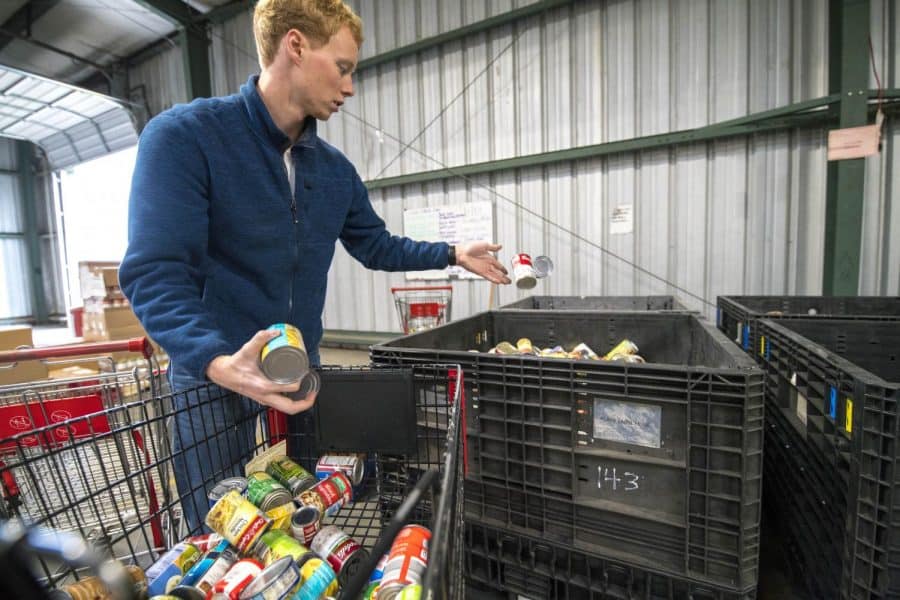Alabama beats Auburn in annual food drive
November 19, 2018
Online donations ended up being the key to success for The University of Alabama’s Beat Auburn Beat Hunger food drive, which surpassed Auburn’s donation total and broke its existing record by collecting 309,194 pounds of food for the West Alabama Food Bank.
The six-week fundraiser broke several records. The University achieved the highest amount of donations in Beat Auburn Beat Hunger’s 23-year history and exceeded last year’s total of 260,453 pounds.
While Auburn University did not win the competition this year, Auburn surpassed its own record in collecting 255,916 pounds of food in its Beat Bama Food Drive. Together the universities raised 565,110 pounds, breaking another record for most collected.
Jean Rykaczewski, executive director of the West Alabama Food Bank, said about 95,000 pounds of real food was donated, and that the rest was monetary donations. Every $1 raised equals two pounds of food.
“Online giving is the future of the drive,” Rykaczewski said. “Cans are appreciated, but it’s also logistically easier to have monetary donations.”
Rykaczewski said this is the first year there were no cans sent in the mail, and mail donations cost more. She said the amount of canned food collected will last through March or April, but the dollar amount will help buy multiple truckloads of food, each costing about $25,000 to $30,000 per load.
Olivia van Praag, a senior majoring in biology and the director of Beat Auburn Beat Hunger, said online donations gave people the opportunity to donate nationwide, and donations were received from 43 states.
Along with the ease of online giving, Beat Auburn Beat Hunger tried other new strategies to reach people.
“We just focused a lot on education and awareness around the area,” said Courtney Thomas, director of the Center for Service and Leadership. “Our community showed up and showed out this year.”
The Alabama Athletics Department helped with outreach efforts by providing athlete photos and a video of well-known athletes encouraging people to donate, van Praag said.
“This campaign, the University has been extremely supportive, as well as SGA and Alabama Athletics,” van Praag said. “They had a huge impact to reach different platforms and reach people even more across the country.”
Van Praag said because food insecurity can be hard to talk about, having the drive during football season and the promotion from Athletics helped engage the community.
Rykaczewski said that while employment is up, the West Alabama community still has many people in need. She said there are people in rural areas without access to food and others with multiple jobs who still run out of food at the end of the month.
“The need has shifted,” Rykaczewski said. “Tuscaloosa has done better, but Pickens, Sumter, Hale and Green are not doing real well, with a third of those counties in poverty.”
Rykaczewski said people have lost the ability to cook, as generations were raised with instant dinners and drive-thrus. She said the West Alabama Food Bank is starting to teach people what to do with food and how to avoid processed foods.
Though the Beat Auburn Beat Hunger campaign has ended, people can still give to the West Alabama Food Bank through several giving options. For more information, go to www.westalabamafoodbank.org/get-involved/individual-donations/.





















